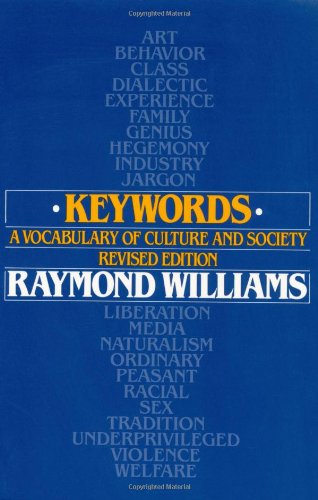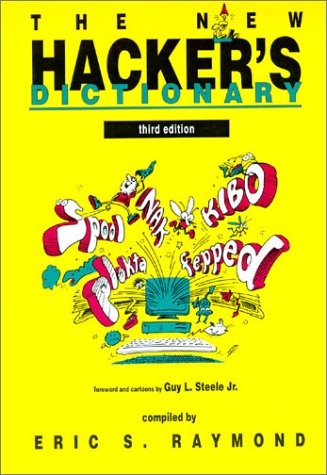
a history of Neoliberalism
The Director of Scholarly Communication for the Modern Language Association, Kathleen Fitzpatrick, recently posted two pieces to her blog “Planned Obsolescence” about the term neoliberal.
In the first post, Fitzgerald expressed her exasperation with how this economic/political term’s meaning has been “dissipated”:
I have come to despise the term “neoliberal,” to the extent that I’d really like to see it stricken from academic vocabularies everywhere. It’s less that I have a problem with the actual critique that the term is meant to levy than with the utterly sloppy and nearly always casually derisive way in which the term is of late being thrown about.
The term seems to be tiresomely overused, I would agree. On the other hand, I think such keywords (as Raymond William’s classic work called them) or frames are central and powerful aspects of critical/political communication, which we might look at how to better engage, explore, and leverage, rather than banish.
Along those lines, I propose a project: what if we built a participatory and community-published “Critical Jargon File,” to provide shared reference points and support more sophisticated, effective, and precise discussion? For the scope, or community, of Humanities/Social Sciences (HSS) scholarly communication, let’s say.
My model here is the “Jargon File“, a core text of computing culture, compiled over time by Stanford and MIT’s AI Labs, and other key computing centers. Beginning as just an ad-hoc, informal compilation, through many years of iteration it became a carefully edited, widely read and influential key work in the field.
As this case illustrates, the term “jargon,” like “argot” or “cant,” need not be understood negatively. Jargon may be a powerful means for community formation, cultural transmission, and efficient communication.
Also, because our communications are increasingly social, compressed, and atomized, the community-articulating and efficiency functions of jargon may be especially useful.
I imagine a community curation / publishing project, perhaps overseen by some organization like the Modern Language Association or Duke University Press, to gather definitions and usage examples of terms, and make them widely deployable in scholarly communication by various means. (Digital Humanities software, Linked Data, Web services, dictionary modules, etc.).
Thereby, anyone who wished could reference precise definitions or discussions of critical terms — possibly even choosing between multiple versions, to clarify which usage or interpretation of the term is meant. This could be done very efficiently by using specific identifiers, e.g. a DOI (Digital Object Identifier) or simply a stable URL. Terms could be linked or footnoted to these reference points in various ways.
As with the original Jargon File, the collected vocabulary might also become a cohesive major document and destination in itself; even the basis for book editions. In some ways, this is a familiar practice for scholarly societies and publishers, which often build and distribute subject taxonomies and database products. For scholarly publishers, as for political movements, effectively disseminating vocabulary may be their most powerful and profitable activity. .
Hashtags as Jargon
One potentially powerful way a Critical Jargon File vocabulary might be used is with the “hashtag” convention as used on Twitter. In Twitter, anyone writing a message can prepend the pound/hashtag character “#” to a word, which by convention indicates that it is some kind of subject description. The Twitter system then lets any user search for or track other occurences of this “hashtagged” term.
Hashtags have been widely employed to organize grassroots communities of interest, efficiently signal topics and contexts of posts, help organize political protests (as in the Arab Spring), and organize discussion “back channels” at events and conferences.
A term from the Critical Jargon File might be referenced by hastags in several ways. First, by using using the hashtagged term e.g. #neoliberal plus a hashtag like #CJF.
@tmccormick
“Better Communication Through Jargon”: a response to @kfitz‘s posts http://bit.ly/VHEmeC on use of #neoliberal. http://bit.ly/VHEmeH #CJF
“Better Communication Through Jargon”: a response to @kfitz‘s posts http://t.co/cNH39YML on use of #neoliberal. http://t.co/8OIZIZhU #CJF
— Tim McCormick (@tmccormick) December 15, 2012
Alternately, a combined hashtag such as “#neoliberal_CJF” could be used:
@tmccormick
“Better Communication Through Jargon”: a response to @kfitz‘s posts http://bit.ly/VHEmeC on use of #neoliberal_CJF. http://bit.ly/VHEmeH
"Better Communication Through Jargon": a response to @kfitz's posts http://t.co/cNH39YML on use of #neoliberal_CJF. http://t.co/8OIZIZhU
— Tim McCormick (@tmccormick) December 15, 2012
A reader, or some reading tool operating on their behalf, could spot the #CJF or combined tag and infer that it, or adjacent hashtagged term(s), is a hook to the Critical Jargon File entry.
(In a reading tool designed for scholars/researchers, such features might be built-in or easily scriptable/configurable. Coincidentally, one of my current projects is to design and prototype just such a tool, which in discussion with Joe Wikert of O’Reilly Media I’ve called “SmartEreader“. When I was a child, I believed Smarties candies made me smarter, and now I hope a SmartEreader might help as well).
Conclusion: jargon, handled the right way, might help us talk more clearly, especially in today’s media.
.



@PabloK agree. see my proposal for a community Critical Jargon File: http://t.co/JgEUN00ynE
@emilyarkin hi Emily, thanks for follow. Intrsted in what you (want to) work on. How about a Critical Jargon File? http://t.co/w6uNzgl5pj
@damonayoung see my proposal for academic jargon lexicon/web-service: “Better Communication Through Jargon” http://t.co/w6uNzgl5pj
“hashtags key to Twitter exchange, community” -@johnmjones: cf. “Better Communication Through Jargon” http://t.co/JgEUN00ynE
#b5 #cwcon
Pingback: Interview: Tim McCormick on Social Media, Scholarly Communication and Digital Publishing, Part 1 - Critical Margins
Difficulty is that different communities use the same word to mean very different things. For eg a ‘rational’ action is understood very differently by an economist and a lawyer. So your system mayneed to allow for sepereate definitions to coexist – and allow people to identify which definition they are using the term.
Rupert Gatti
> different communities use the same word to mean very different things.
yes, good point. Part of my thinking for #JargonHub, although not spelled out in original blog post, is to embrace, support, and disambiguate those different views. I imagine community-driven definition leading to variants: “neoliberalism,” may (likely) have multiple, and let’s say David Harvey’s presentation of the concept is labeled “neoliberalism3.”
So, to illustrate this using a recent tweet on the topic, we might use variant definition labels like this:
@jeremykkessler 8:13 AM – 26 Nov 13
gorgeous review of Mirowski & the 2 meanings of #neoliberalism by @rortybomb http://thenewinquiry.com/essays/how-to-waste-a-crisis/ #neoliberalism1 #neoliberalism3 #jargonhub
[original: https://twitter.com/jeremykkessler/status/405368713555091456]
The hashtag #jargonhub as included here might signal to readers, and perhaps automatically to their reading tools, that adjacent hashtags reference the JargonHub repository of definitions. A reading tool might, for example, be set to show short definition on mouse rollover, or direct-link to the full definition on JargonHub.
Part of the ethos here is recognizing that multivalent and, err, capacious terms like ‘neoliberalism’ don’t become meaningless or useless through diverse use, but continue to usefully thread together powerful debates, conflicting and ambiguous meanings, and evolving usages. Just as Raymond Williams & other intellectual historians have suggested the power of tracking long-term uses of “keywords,” in our highly fragmented but networked world today it may be even more valuable (and much more possible) to connect different meanings and contexts via keyword/hashtag threading.